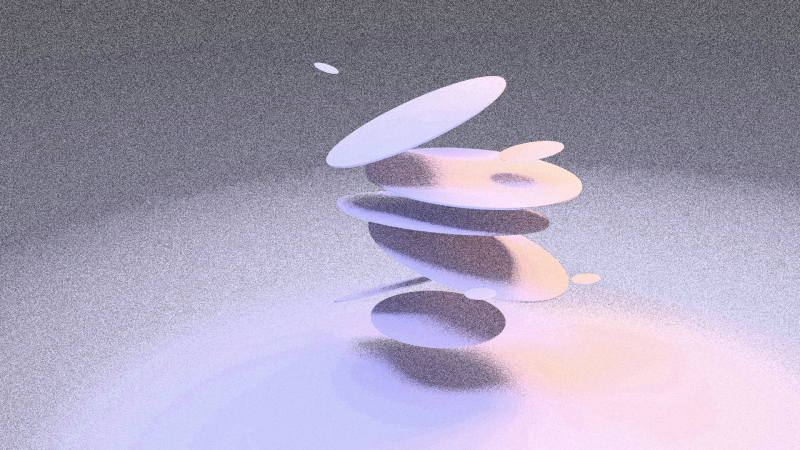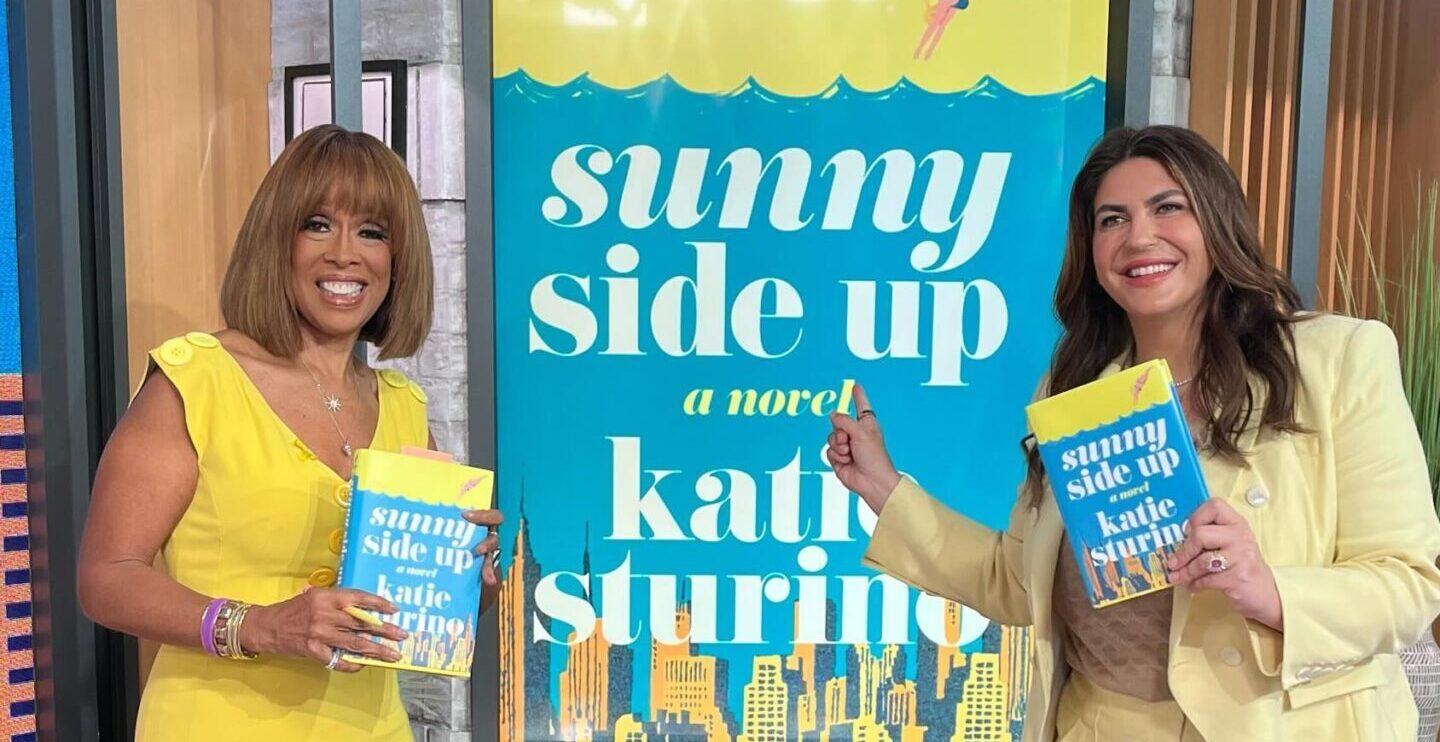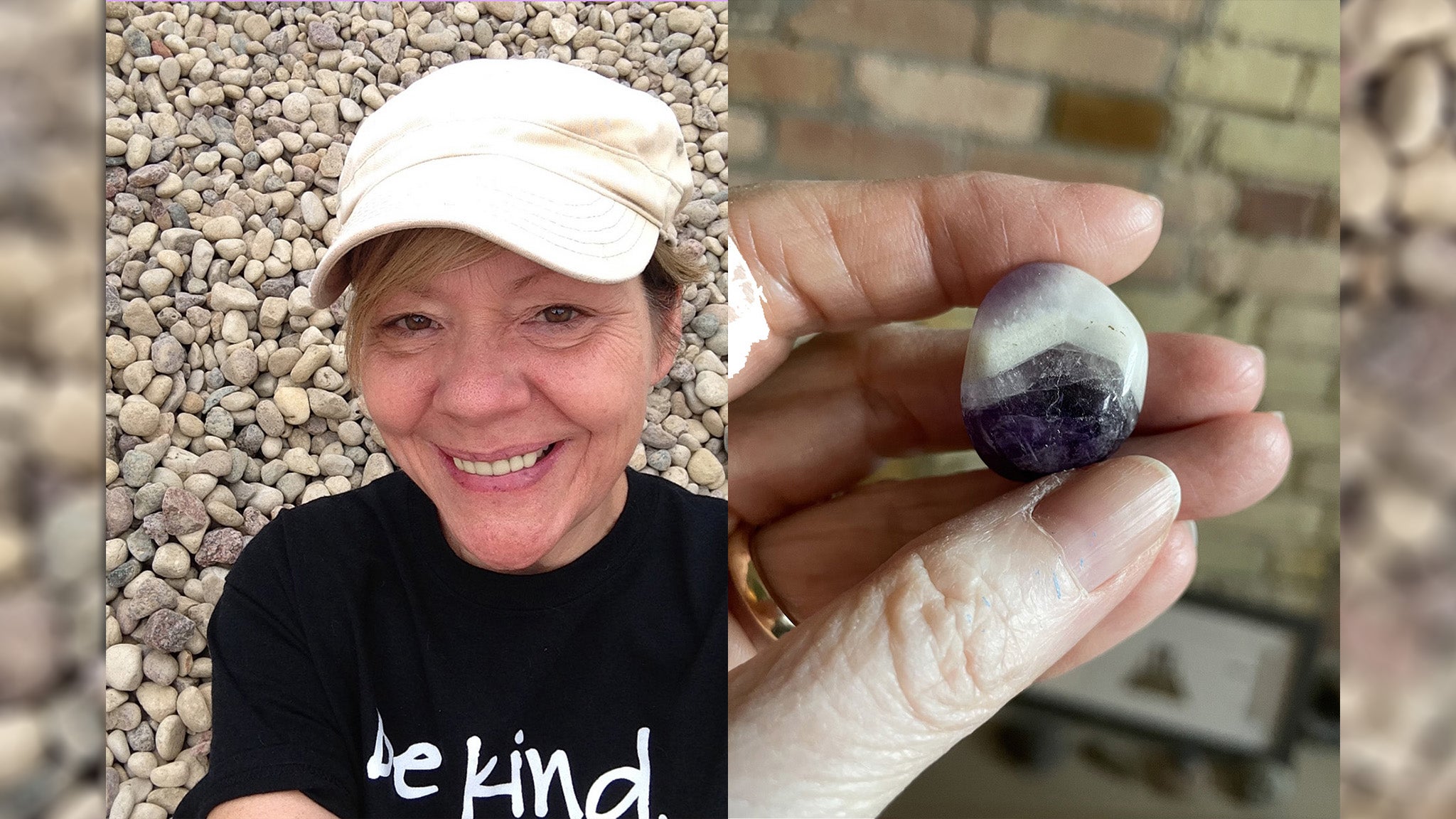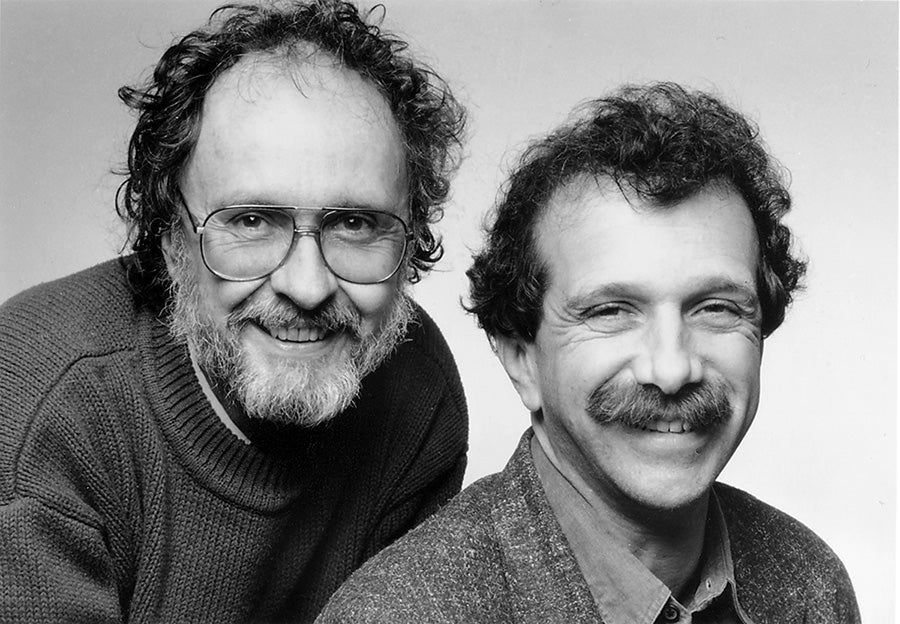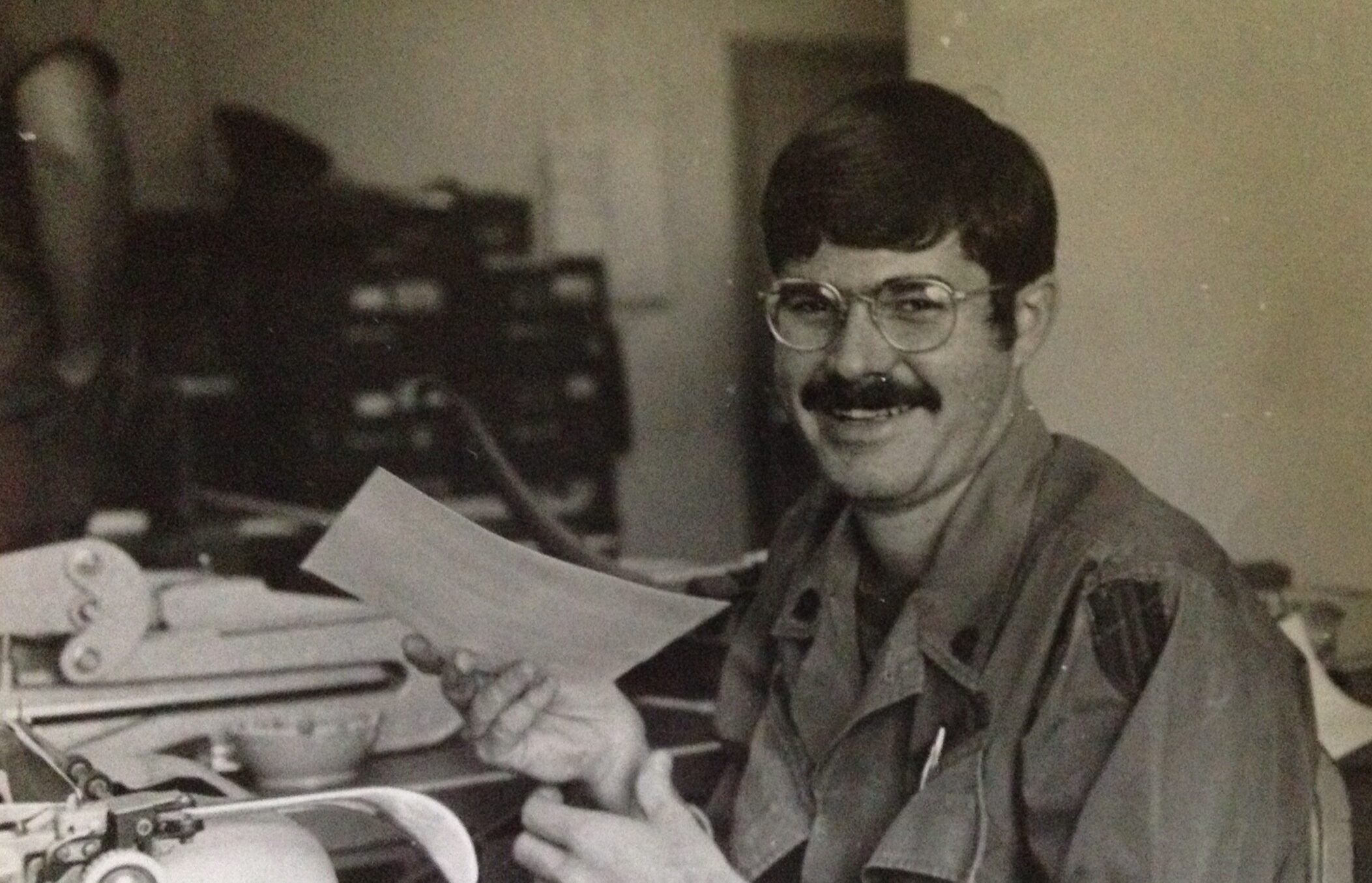After enduring four years of political turmoil, the disruption and despair of a global pandemic, and the most fraught American election year in recent memory, John Oakes was ready for a reset at the end of 2020.
“I decided to undertake a fast,” said Oakes, speaking to Angelo Bautista for “To The Best Of Our Knowledge.”
He hadn’t fasted since his youth, but the moment felt right to reflect on his patterns and appetites — plus, he said, he wanted to purge himself of many feelings his body had experienced.
News with a little more humanity
WPR’s “Wisconsin Today” newsletter keeps you connected to the state you love without feeling overwhelmed. No paywall. No agenda. No corporate filter.
What he found — far beyond the basic mechanics of how to fast — was a powerful history of fasting as a means of accessing hidden aspects of our nervous system, and even as a political tool for questioning the authority of those in power.
That rabbit hole into the historical, political and scientific history of fasting became his first book, “The Fast: The History, Science, Philosophy, and Promise of Doing Without.”
This transcript has been edited for clarity and length.
Angelo Bautista: What is fasting to you?
John Oakes: There are many different kinds of fasting. The first thing you think about is not eating. I mean, that seems to be the most obvious. But there’s also fasting from speech, from sleep, from sex — just about anything you can think of.
In our daily lives, we go through this thing called “automaticity.” When you wake up, you get dressed and you don’t think about the process of tying your shoes or putting on your clothes or brushing your teeth or pouring yourself a cup of coffee. All of that is a matter of rote, something that gets drilled into you. And a lot of that is voluntary, and some of it is involuntary — you have to breathe — but a lot of it, we just slip into unthinkingly.
Looking at the process of fasting, it helps — even temporarily — take me out of myself and think about what I’m doing. At the end of a fast, you can go back to doing this stuff, but at least, for a little bit there, you’ve considered very carefully what you’re doing.
Fasting from consumption is the main thing that interests me, but we’re constantly in our daily lives choosing when to fast and when not to fast, even if we’re not consciously doing so. If you think of saying something, making a mean comment to a colleague, and then you bite your tongue, it is absolutely within the purview of this general topic of holding back.
AB: Is fasting about asserting agency and affirming boundaries between yourself and the rest of the world?
JO: Absolutely. Completely. Even if the effect is evanescent, even if it goes away because I slip back into my old habits. If you’re going to undertake it, a fast should be something that’s of a limited duration that has very strong boundaries.
It also helps you reflect on your own physical boundaries, the bodies in which we’re all encased.
AB: I wanted to talk about where the roots of fasting began. How far back can we trace this practice of fasting?
JO: One early example of fasting is in the Iliad. Achilles, after the death of Patroclus, his partner, refuses to eat. And then he goes into battle. For some historians or classicists, that’s been evidence of his bloodlust. But for me, he was acknowledging the massive break in his life.
In the Bible, there are many instances of fasting. There’s Moses and Jesus, the 40 days of Lent. The Greeks, the Ascetics, Epicureans, the Stoics, Plato — everybody fasted now and again. There’s a lot of records of people fasting before battle, seeking to purify themselves.
But hopefully we don’t see it in such warlike terms. It’s really a matter of empowerment.
AB: I’m curious as to what actually happens to the body when we fast. I mean, we’ve had this long history of fasting. Do we have an understanding about what happens?
JO: I’m obviously not a medical professional, but I spoke to a few, and it’s really interesting. Everyone’s body is different, so everyone’s going to react to a fast in different ways.
But one thing after the first few days of a fast — if you’re on a liquid only fast, you are generally quite uncomfortable.
But then this incredible machinery kicks in and these chemicals come out. You have these things called ketone bodies and endocannabinoids, which, as it sounds, are closely related to cannabis. You have serotonin, which is sometimes called the happy hormone. You have BHB, which is another hormone. All this stuff kicks in and many people start feeling serene and calm, which I did and do when I fast for a long time.
Cesar Chavez, the great labor leader, was a real serious faster. He said that by the fifth day of a fast, he would have this crystal clear memory and he could recall conversations word for word. You know that people do feel different things, but your body really does go through very interesting changes.
Anyone who’s thinking about undertaking a long fast, you want to be in reasonably good health and probably check with your doctor. I would never advocate somebody else do a long term fast like that. What I would say is that it’s not a cure all. People say fasting will cure everything from the common cold to cancer, and it’s just not that clear what it does for you.
AB: What we are learning more about is the relationship between our gut and our brain. You wrote something interesting, that our gut is our largest sensory organ in our body. I’d never considered that before. So what role does our gut play in our conscious experience? And what does fasting do to that?
JO: It’s sometimes called our second brain, the enteric nervous system, which is this really incredible mass — hundreds of millions of neurons, second only to the brain that is sitting right there in our intestines and the stomach.
When you’re fasting, you make a decision with your brain to differentiate yourself from the brain in your gut, going with the brain in your head. So at the beginning, there’s a little battle going on. I think for most people — certainly for me, the first day or two — it’s a little uncomfortable. But for me, it’s not really about the pain or the discomfort. It’s about the opening up and the reconsideration of who I am and how I fit into this world.
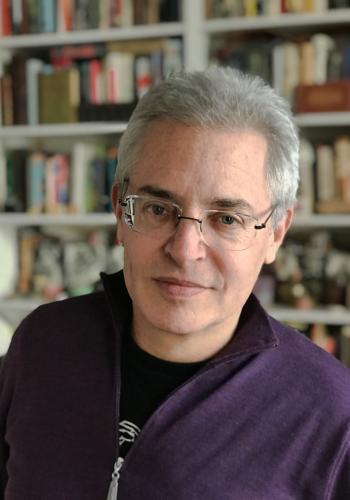
AB: Because when you’re not eating, you have a lot of time to think.
JO: A ton of time. You’re not shopping for food, you’re not figuring out a meal, you’re not cooking the meal or eating the meal. You have a whole lot more time on your hands.
AB: Are there other points in history where we can look at the hunger strike as a kind of effective political tool? Gandhi is a very obvious example. What other examples are there?
JO: The one that comes to my mind internationally is the story of Bobby Sands in 1981.
Irish political prisoners had employed fasting hunger strikes for decades. It infuriated the authorities. It forced them to enter into a dialog with the hunger strikers. In the case of the voting rights activists, even when they force fed them — and it’s a brutal experience, by all accounts, being force fed. And quite dangerous — it forces the authorities to acknowledge the imprisonment of these people in a way that they’d rather not. Authorities everywhere want to be seen as the maintainers of order against chaos and evil-doing. And by entering into these hunger strikes, people force prison authorities to deal with them.
Many people died, among them the Lord Mayor of Cork, Terence MacSwiney, who died of the effects of force feeding in the 1920s.
Then it came back in the 1970s and 1980s. Bobby Sands was really a turning point because it was the first time in living memory that an elected official — he had been elected to West Belfast as a representative — undertook a hunger strike. After about 60 days, he died.
The combination of the callousness of the British jailers and the obvious sacrifice of this young man really helped galvanize public opinion.
I spoke to one person who was there with Sands: Patrick Sheehan, who’s now himself a representative in the Irish Parliament. I asked when they entered these hunger strikes, did they intend to die? Was this a suicidal act? Sheehan reacted very strongly to that and said, no, absolutely not. “We were young men and we had a life ahead of us,” he said. This was a way to really communicate the intensity of their beliefs.
AB: You write that hunger strikes are not just about purity of intent, or their seriousness of action, but it kind of reframes the conversation of what is at stake, around those who are hungering, those who are fasting, and their bodies.
JO: Yes, and it because it also forces the authorities to interact in a way they’d rather not. It’s forcing the authorities to say “we’re not quite in control.” You want your prisoners to behave and to accept their punishment because that’s why they’re in prison, right? They decided to break laws — consciously or not — and you’re trying to correct them to change their path, but they’re saying we don’t want to be a part of your system.
By the way, the largest simultaneous hunger strike that I was able to find occurred at Guantanamo Bay — under U.S government jurisdiction — when hundreds of the prisoners went on hunger strike at the same time because they weren’t being charged with anything.
AB: So really, it is about a breakdown of communication between those in power and those without.
JO: I think that’s correct. It’s a message that there’s urgency that is being ignored and that something has to be done now: “I’m so angry, so upset and feel so left out of this enterprise that I’m willing to put my life on the line.”
“I think there is an increasing movement among people who are saying we should maybe consider what we need and what we don’t need.”
John Oakes
AB: That feels like it’s describing so many facets of our life currently.
JO: Yeah, and it’s done all around the world. All the time, people are undertaking hunger strikes. There was a hunger strike that took place a couple of years ago —a whole bunch of the taxi drivers went on strike because they had been tricked into taking out these terrible debts which were just crushing them. And they did succeed in getting these debts renegotiated.
When people feel that they’ve exhausted their other avenues, they turn to a hunger strike. It doesn’t always succeed, but usually, especially in a society where there’s free press, you get people discussing it. That was one of the issues in Russia in the 19th century — and now too, I’m sure — where there’s not a free and vibrant press, these hunger strikers can die without anyone knowing about what happens.
But it gets out. And even during the Soviet Union, hunger strikes could be a very effective tool of activists.
AB: I’m wondering, are we sanitizing fasting? Are we losing this sort of deeper spiritual possibilities, closing ourselves off to that, in today’s age?
JO: That’s an interesting question because it becomes fasting as acquisition. You’re fasting to acquire better health in a way, to live longer and so you can actually be conservative. I don’t think that’s quite the idea behind original fasting. If people want to do that, that’s fine, but it’s certainly is a different kind of fasting. And it’s one that to me doesn’t seem quite as interesting.
You don’t really need anything to fast. Fasting is free. Fasting is about your own agency, your own decision-making. And it’s something that you undertake, and then you decide when to stop. I think it’s obviously a bad thing when it becomes a kind of contest and you try and push yourself, that’s something unhealthy.
But if you can step out of what you’re doing — whether it’s food or something else like electronic devices— it’s good to reconsider how we make these automatic decisions without thinking about them.
AB: It seems to me that in this modern era that we’re living in, fasting is not something that we should have to do. But after reading your book, I get the sense that, in this culture of excess that we live in, it almost seems like there’s a moral imperative to do less and to redirect ourselves. Are you seeing fasting kind of coming into the culture more?
JO: I don’t know if there’s an imperative to do less, but maybe an imperative to think about what we’re consuming and how we do it and why. I mean, I don’t want to bring it back to evil corporations, but people want us to buy and to keep buying. You’re feeling down, so you should buy stuff and consume stuff.
I think there is an increasing movement among people who are saying we should maybe consider what we need and what we don’t need.
AB: And the only way we can make a change is to have that moment of reflection first.
JO: Yes. And fasting can be a tool to get us there.

